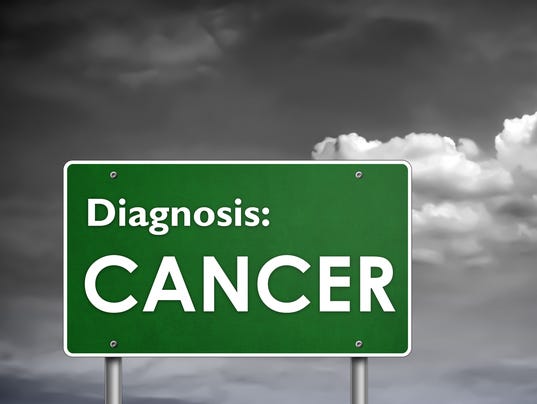Advances In Radiation Therapy Offer More Effective Cancer Treatment

Advances in radiation therapy offer more effective cancer treatment
2018-01-30 15:44:02
Since its inception at the start of the 20th century, radiation therapy has evolved to become one of the most common " and potent " forms of treatment for all types of cancer, with approximately 67 percent of patients receiving it " either alone or in combination with other treatments. Dr. Henry J. Lee, MD, PhD, Director of the Department of Radiation Oncology at NewYork-Presbyterian Lawrence Hospital in Bronxville and an Assistant Professor of Radiation Oncology at Columbia University Medical Center, discusses radiation therapy and the latest advances, which have raised the bar for more successful patient outcomes.
Q: What is radiation therapy?
A: Radiation therapy, or radiotherapy, is the use of various forms of radiant waves of energy to safely and effectively treat cancer and other diseases. It can be used to cure cancer, control its growth or relieve painful symptoms. Radiation therapy works by damaging cells; normal cells are able to repair themselves, whereas cancer cells cannot.
Q: How is it different from other forms of cancer treatment?
A: Radiation therapy complements the other major forms of cancer therapy " such as chemotherapy and surgery. It is similar to surgery, since both target the tumor, but radiation therapy does not require an incision, operation, or anesthesia. It s also similar to drug therapy in that it usually requires multiple sessions as an outpatient. The difference is that radiation therapy does not travel throughout the body.
Q: When is radiation therapy used?
A: Most times, it is given with a curative intent, such as eliminating the tumor or preventing recurrence, or to reduce the suffering caused by the cancer symptoms.
Q: What are some of the latest advances in radiation therapy?
A: Technology has greatly improved over the last few years, making the dosage and delivery of radiation much more precise. New techniques also allow doctors to better target the radiation to protect healthy cells. This has given radiation an even bigger role in cancer care. Patients are often surprised with the ease of the radiation therapy experience. In the current era of personalized or precision medicine, radiation therapy technology is moving beyond simply treating the tumor and toward developing novel ways to harness the cancer-killing powers of an individual s body. Radiation therapy is an extremely potent enhancer of the body s immune response toward killing cancer cells. When used in tandem with other therapies that also enhance the immune response, these new combinations of therapies can dramatically shrink some cancers that were not responsive to older therapies.
Q: Are there different types of radiation therapy?
A: There are different types that work in different ways, but by far the most common form, used for 90 percent of cancer patients, is LINAC (linear accelerator-based) radiation therapy. This works by customizing high energy x-rays to conform to a tumor s shape and destroy cancer cells while sparing surrounding normal tissue. During a typical 30-minute visit, the experience is similar to getting a CT scan. The patient lies on a table, and the staff prepares them for treatment (no IVs are required). The LINAC silently delivers the treatment, typically over two-to-three minutes. Afterward, the patient leaves feeling much the same as they did when they arrived.
Q: What do you think the future of radiation therapy will hold for patients?
A: Each day, research is finding better, more effective ways to identify biomarkers and gene signatures to develop treatment strategies tailored to the individual patient. The challenge ahead is to make such responses cure more cancers " and through continued research and technological advancements, we re already seeing results as we combine radiation therapy with the new immunotherapies. After all, radiation therapy is one of the most potent agents known to stimulate the immune system, and thus help the body heal itself from cancer.
State-of-the-art treatments at the Cancer Center at NewYork-Presbyterian Lawrence
The Cancer Center is an academic-community partner with the Herbert Irving Comprehensive Cancer Center at NewYork-Presbyterian/Columbia University Medical Center, one of only three National Cancer Institute Designated Comprehensive Cancer Centers in New York State. This identifies centers where the highest quality of treatment, innovative research, and resources for cancer care are available. The multidisciplinary cancer team is located on-site, with a complete array of services including radiation, medical and surgical oncology, as well as supportive oncology services that address the needs of patients from cancer screening, diagnosis and into survivorship.
Original Source: https://www.lohud.com/story/sponsor-story/newyork-presbyterian-hospital/2018/01/22/advances-radiation-therapy-offer-more-effective-cancer-treatment-newyork-presbyterian/1013163001/ Original Author:
OTHER ARTICLES:
- Israeli Child Receives Pioneering Seated Proton Therapy with Innovative System
- Significant Milestone Reached in Compact Particle Accelerator Technology
- Innovative Radiotherapy Method Potentially Halves Treatment Duration for Head and Neck Cancer
- WSU Veterinary Hospital Installs a New Linear Accelerator to Fight Cancer
- Patients Privately Pay $2,500 for a Full-Body MRI Scan to Detect Cancer
- MIT and Dana-Farber's Breakthrough in Identifying Cancer Origins
- Available Diagnostic Imaging for Smaller Communities & Young Athletes
- New MR, PET Images Analyze Alzheimer’s Biomarkers
- Prostate Cancer Treatment Vastly Improved
- Examining Breast Cancer Screening Age









